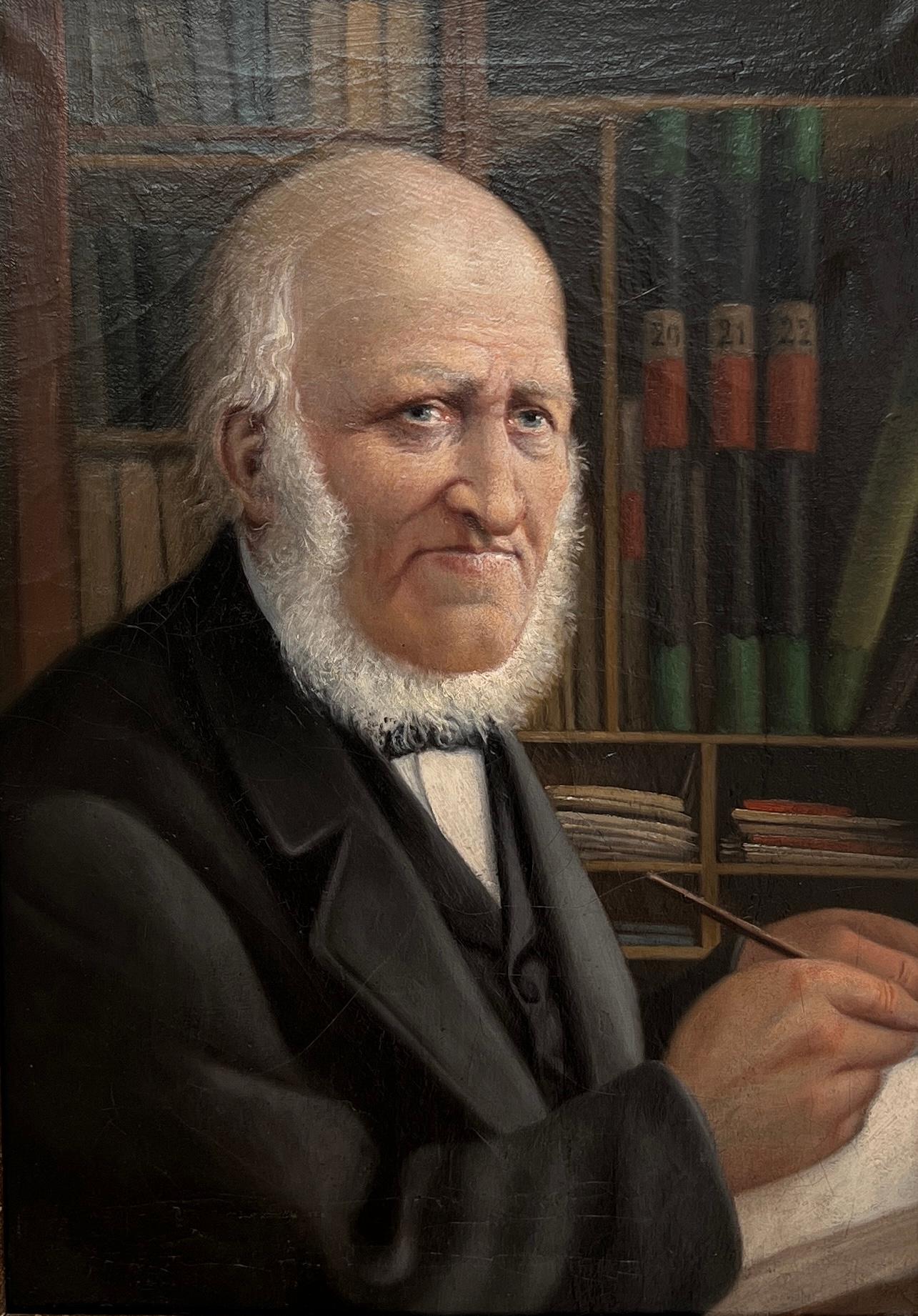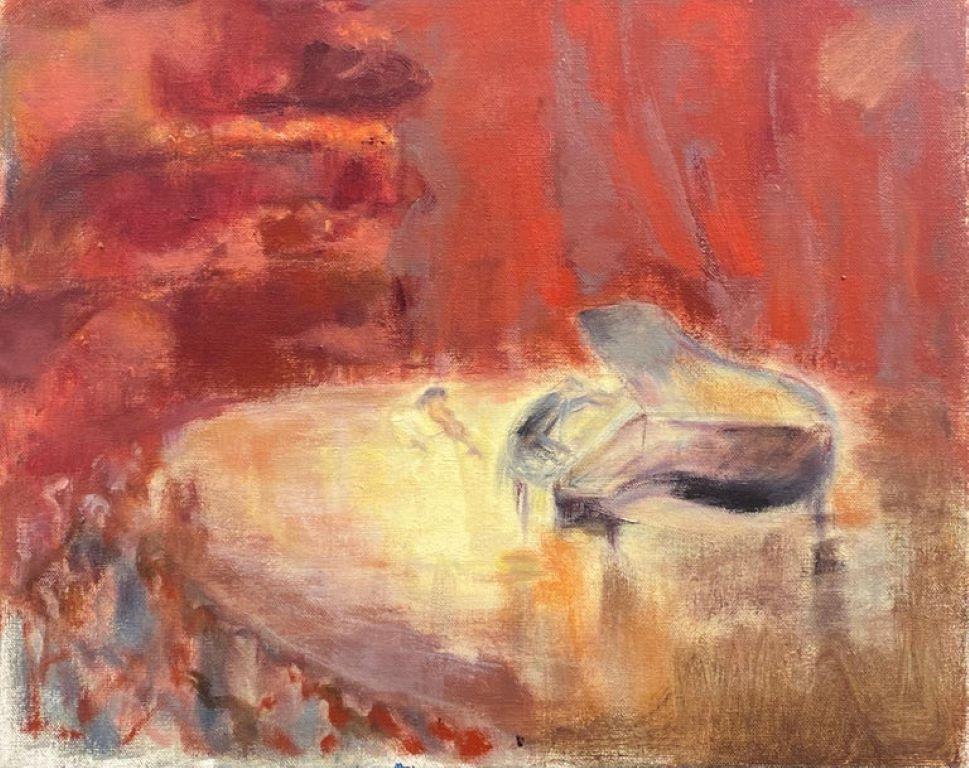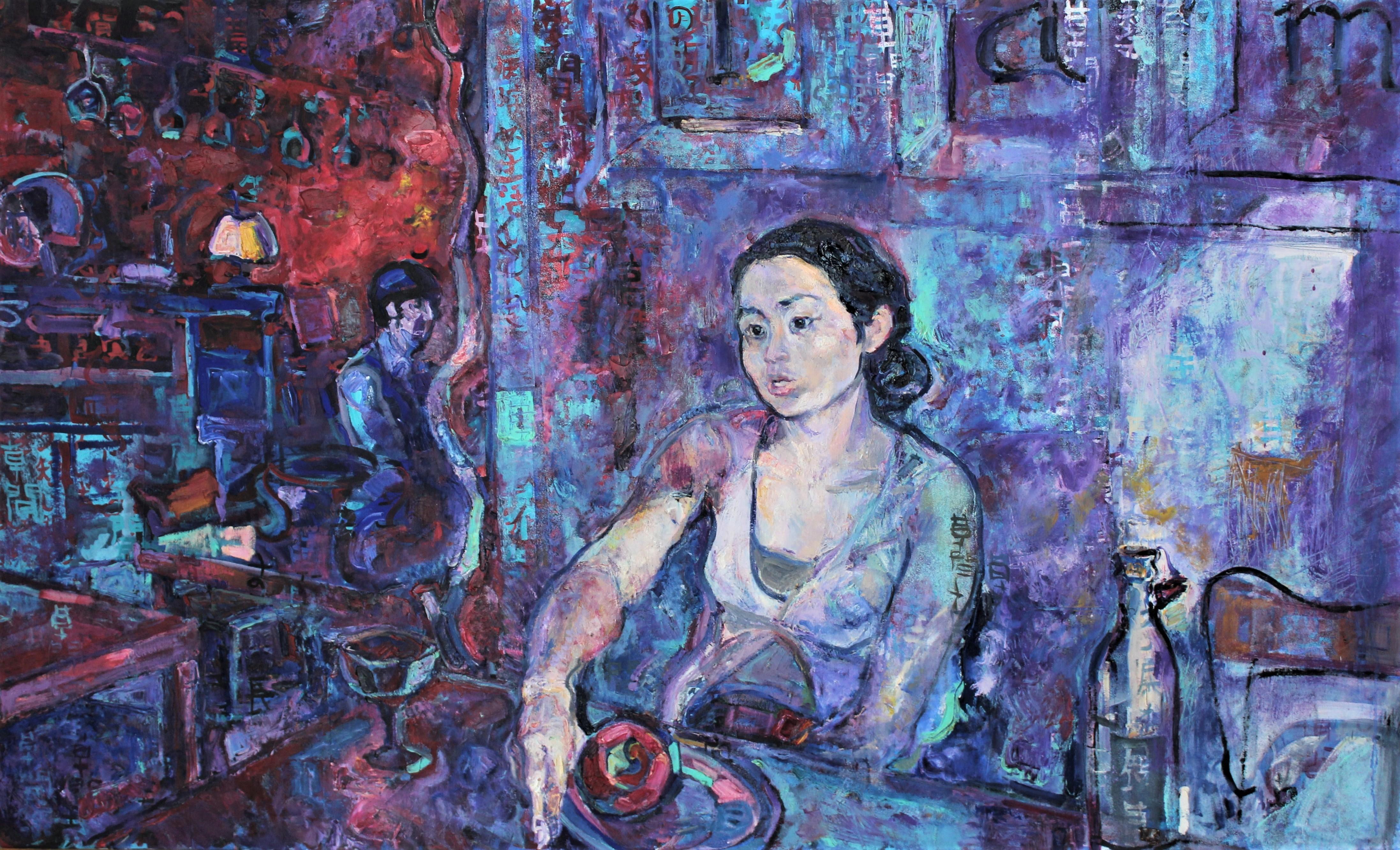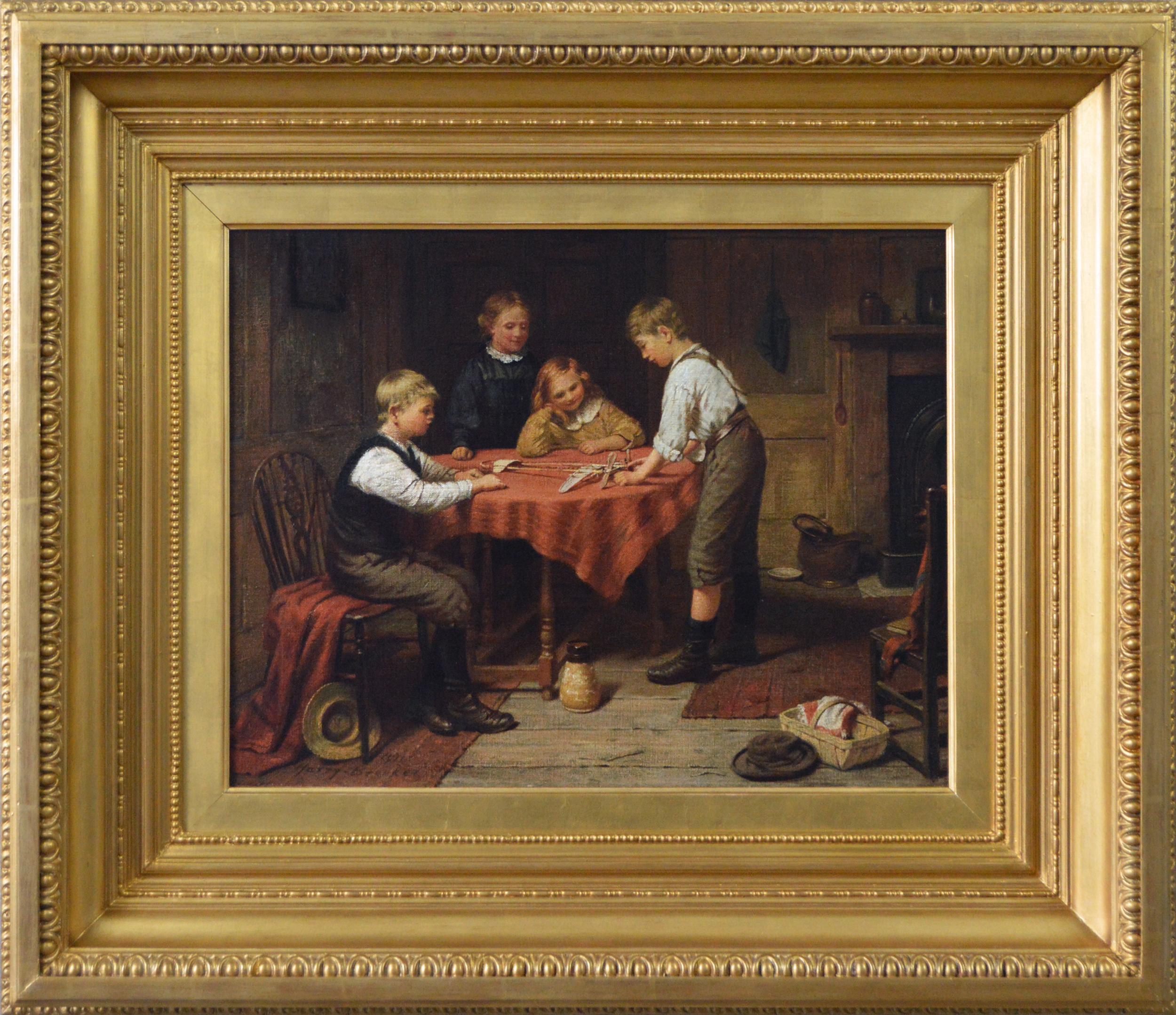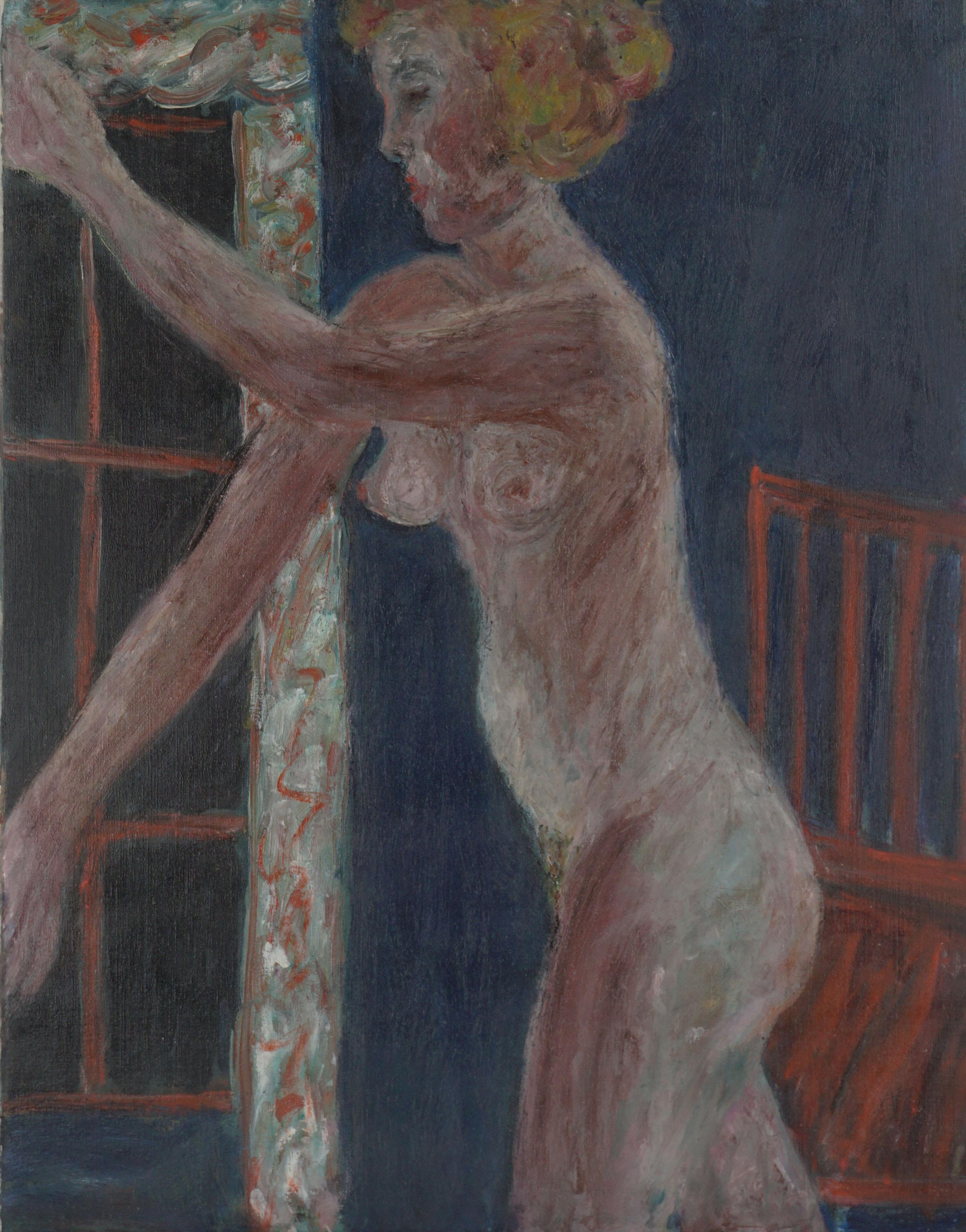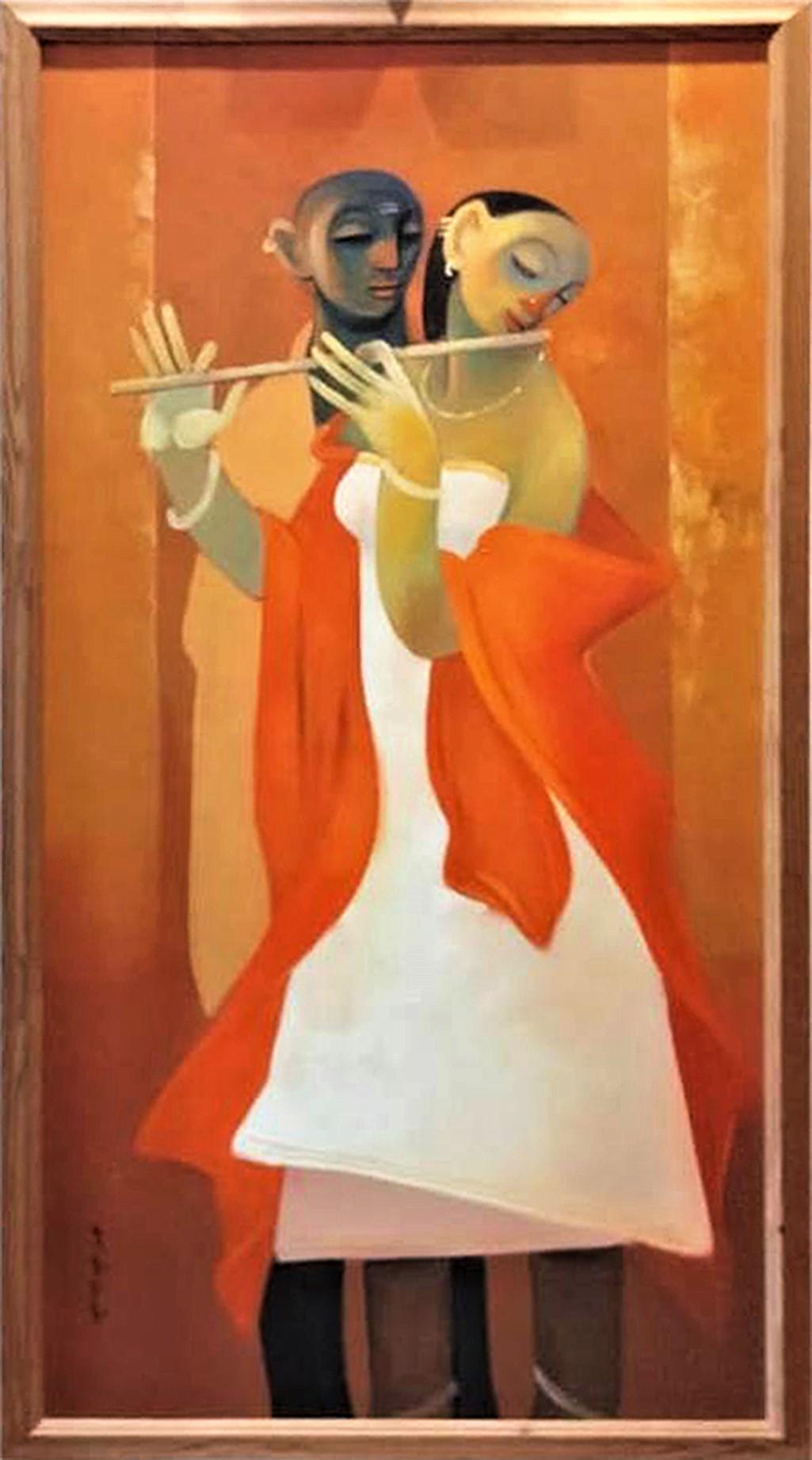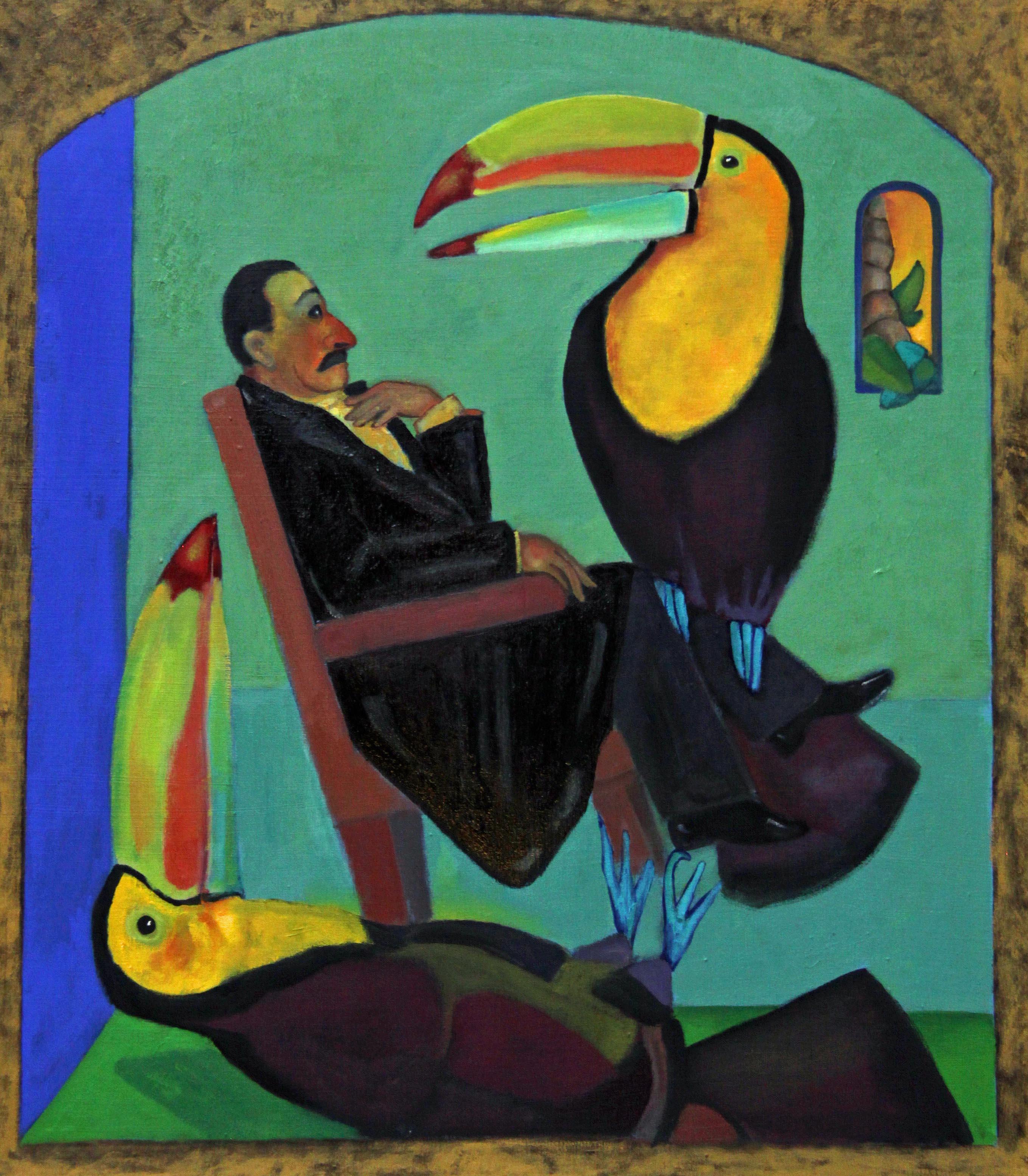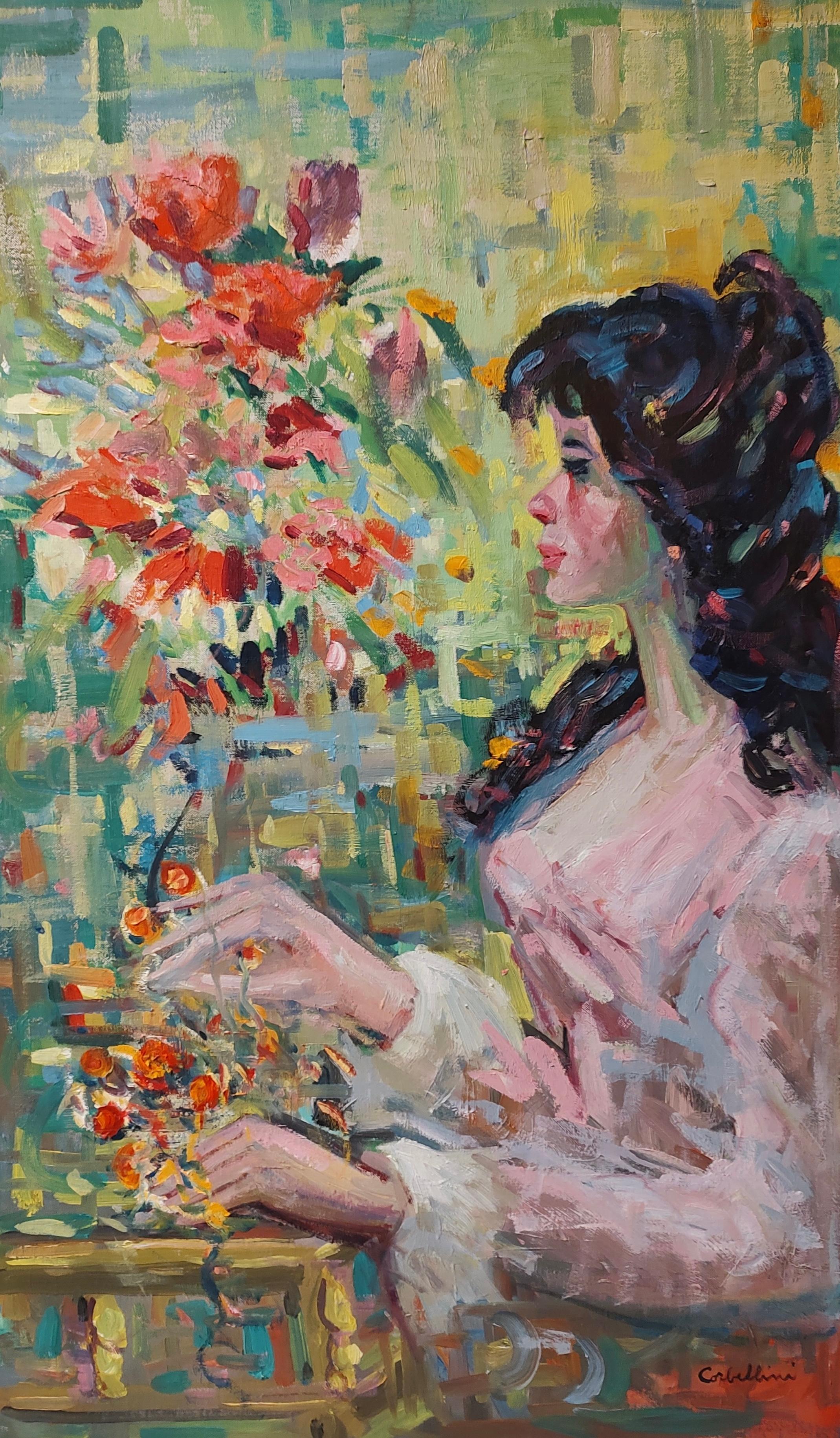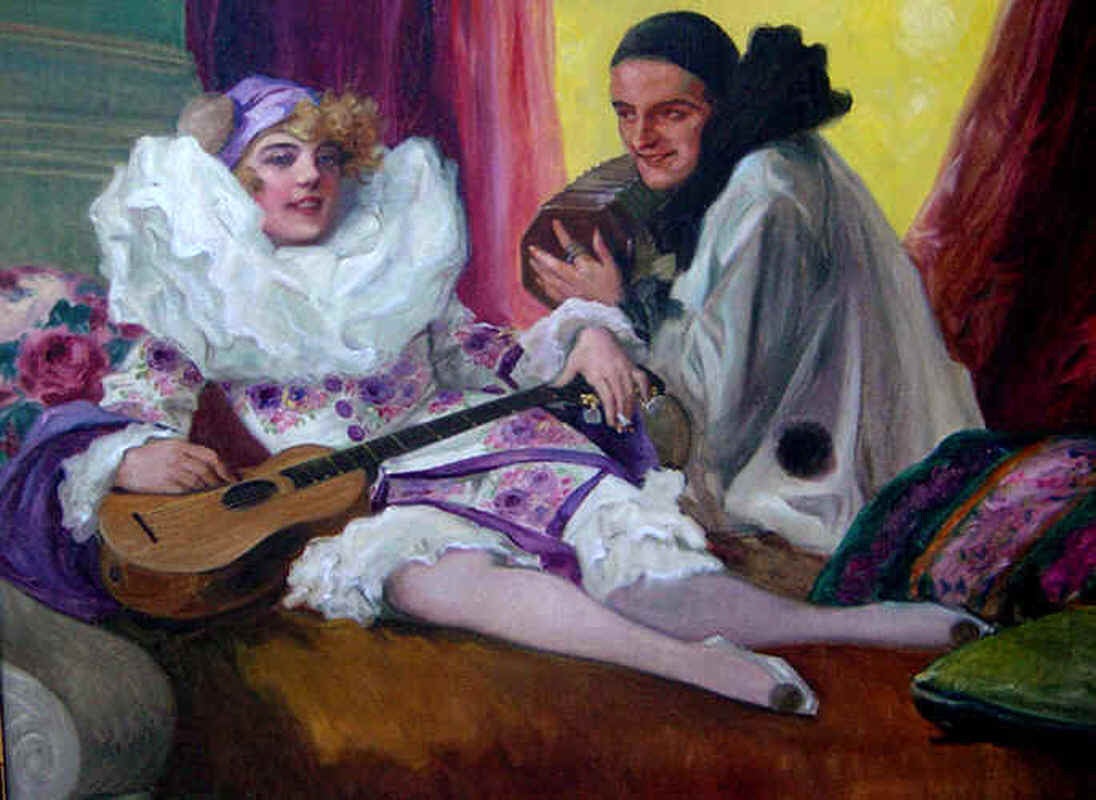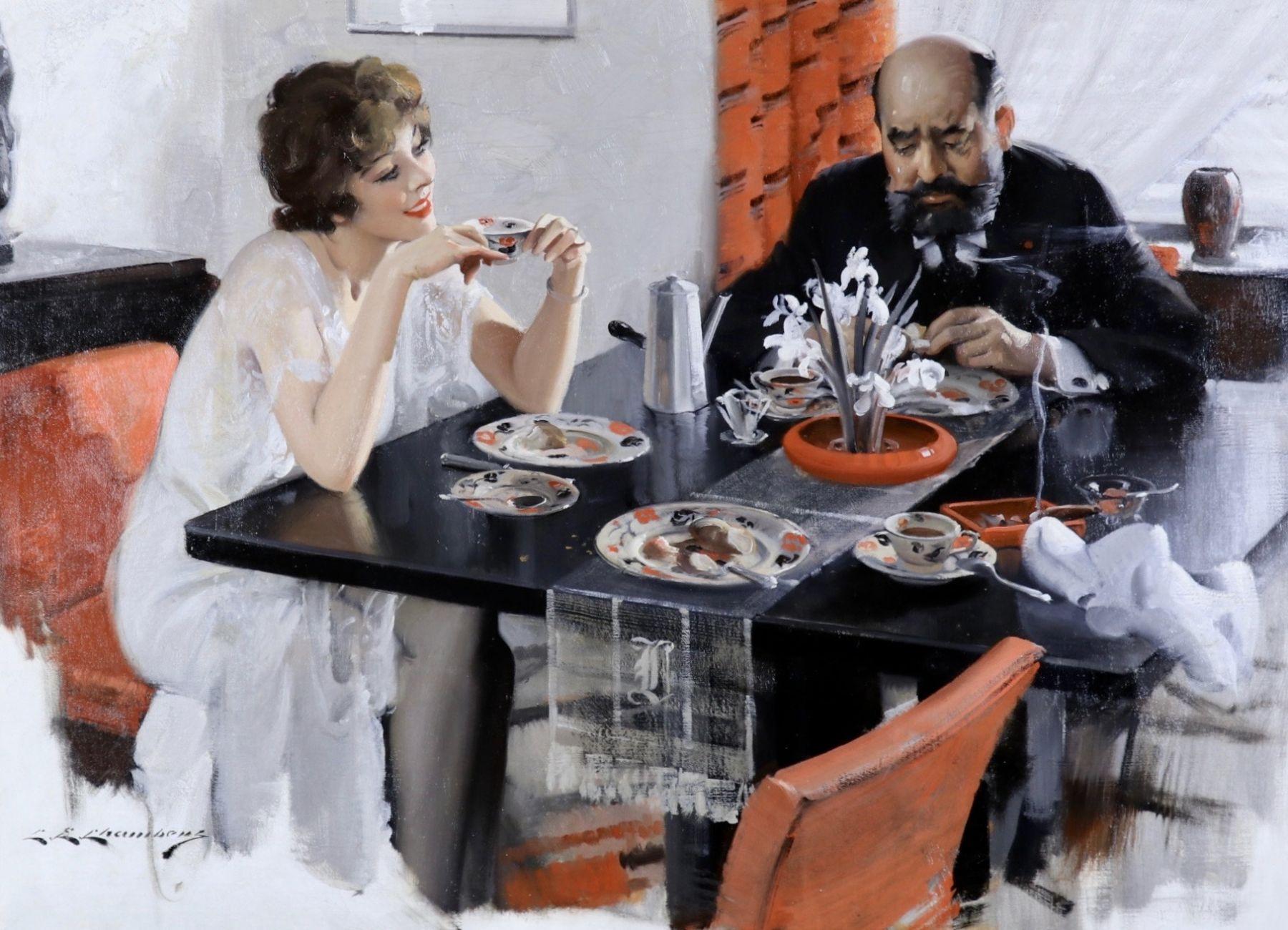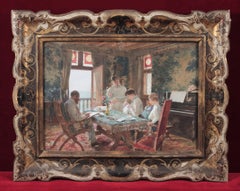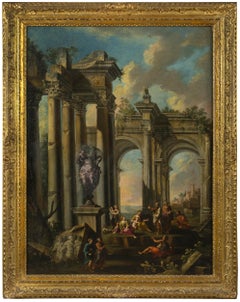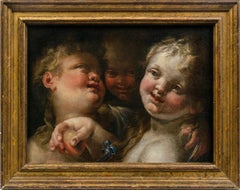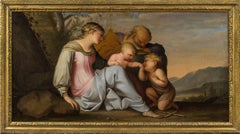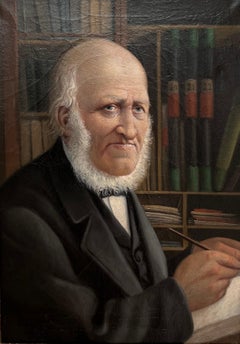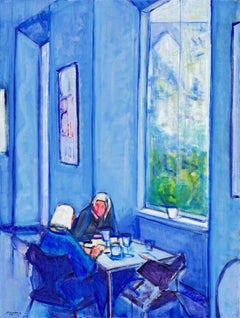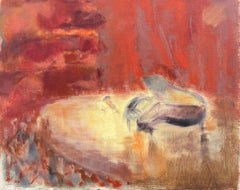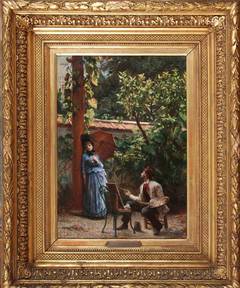
The Artist and His Model
View Similar Items
Want more images or videos?
Request additional images or videos from the seller
1 of 6
Félix-Joseph BarriasThe Artist and His Model
About the Item
- Creator:Félix-Joseph Barrias (1822 - 1907, French)
- Dimensions:Height: 20 in (50.8 cm)Width: 14 in (35.56 cm)
- Medium:
- Period:
- Condition:
- Gallery Location:New York, NY
- Reference Number:1stDibs: LU102461722
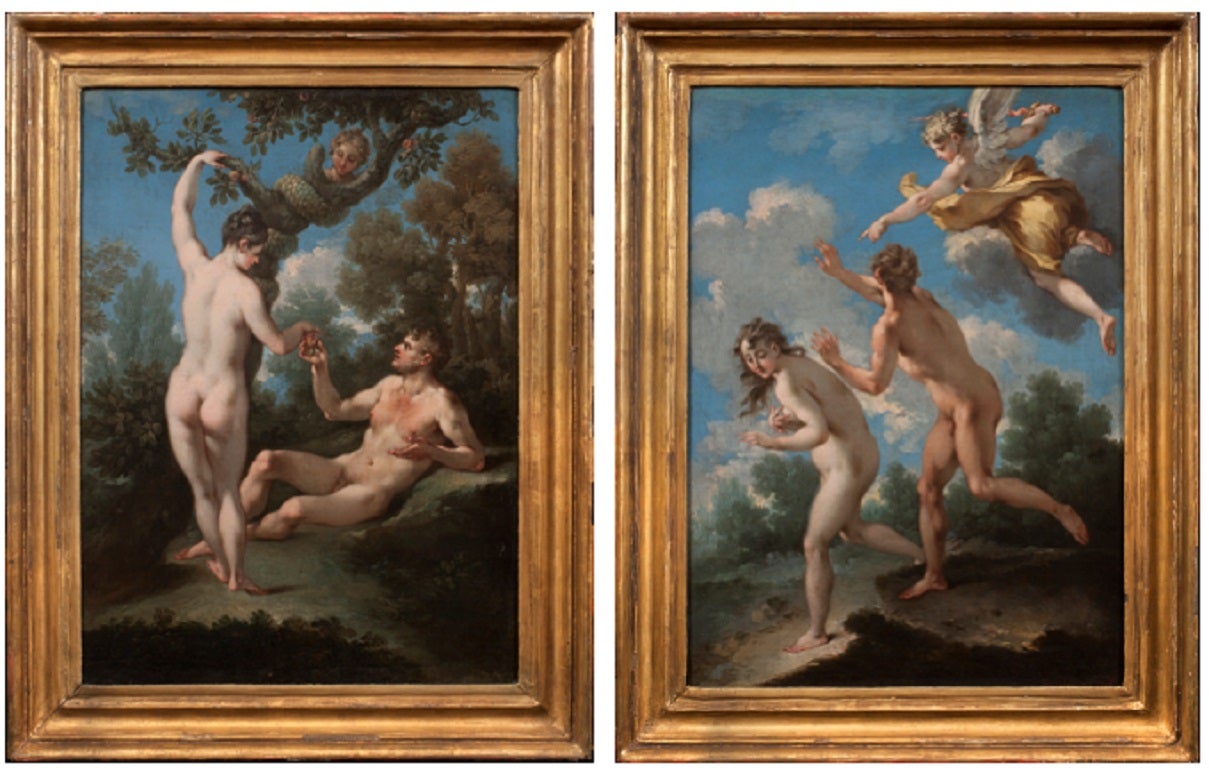
About the Seller
5.0
Recognized Seller
These prestigious sellers are industry leaders and represent the highest echelon for item quality and design.
Established in 1997
1stDibs seller since 2012
19 sales on 1stDibs
Typical response time: 12 hours
Authenticity Guarantee
In the unlikely event there’s an issue with an item’s authenticity, contact us within 1 year for a full refund. DetailsMoney-Back Guarantee
If your item is not as described, is damaged in transit, or does not arrive, contact us within 7 days for a full refund. Details24-Hour Cancellation
You have a 24-hour grace period in which to reconsider your purchase, with no questions asked.Vetted Professional Sellers
Our world-class sellers must adhere to strict standards for service and quality, maintaining the integrity of our listings.Price-Match Guarantee
If you find that a seller listed the same item for a lower price elsewhere, we’ll match it.Trusted Global Delivery
Our best-in-class carrier network provides specialized shipping options worldwide, including custom delivery.More From This Seller
View AllLeisure Moments (Interior Scene)
By Julius Schmid
Located in New York, NY
Charming watercolor of an intimate family scene in beautiful painted period frame. Signed in the lower right-hand corner.
Category
Early 19th Century Paintings
Materials
Watercolor
An Architectural Capriccio with the Preaching of an Apostle
By Giovanni Paolo Panini
Located in New York, NY
Provenance: Santambrogio Antichità, Milan; sold, 2007 to:
Filippo Pernisa, Milan; by whom sold, 2010, to:
Private Collection, Melide, Switzerland
De Primi Fine Art, Lugano, Switzerland; from whom acquired, 2011 by:
Private Collection, Connecticut (2011-present)
Literature: Ferdinando Arisi, “Ancora sui dipinti giovanili del Panini,” Strenna Piacentina (Piacenza, 2009): pp. 48, 57, 65, fig. 31, as by Panini
Ferdinando Arisi, “Panini o Ghisolfi o Carlieri? A proposito dei dipinti giovanili,” Strenna Piacentina, (Piacenza, 2010), pp. 100, 105, 116, fig. 101, as an early work by Panini, a variant of Panini’s painting in the Museo Cristiano, Esztergom, Hungary.
This architectural capriccio is one of the earliest paintings by Giovanni Paolo Panini, the preeminent painter of vedute and capricci in 18th-century Rome. The attribution to Panini has been endorsed by Ferdinando Arisi, and a recent cleaning of the painting revealed the artist’s signature in the lower right. Like many of his fellow painters working in Rome during his day, Panini was not a native of the Eternal City. He first trained as a painter and stage designer in his hometown of Piacenza and moved to Rome at the age of 20 in November 1711 to study figure painting. Panini joined the workshop of Benedetto Luti (1666-1724) and from 1712 was living on the Piazza Farnese. Panini, like many before and after him, was spellbound by Rome and its classical past. He remained in the city for the rest of his career, specializing in depicting Rome’s most important monuments, as well as creating picturesque scenes like this one that evoked the city’s ancient splendor.
The 18th century art historian Lione Pascoli, who likely knew Panini personally, records in his 1730 biography of the artist that when Panini came to Rome, he was already “an excellent master and a distinguished painter of perspective, landscape, and architecture.” Panini’s earliest works from this period still show the evidence of his artistic formation in Piacenza, especially the influence of the view painter Giovanni Ghisolfi (1623-1683). However, they were also clearly shaped by his contact in Rome with the architectural capricci of Alberto Carlieri...
Category
18th Century Old Masters Figurative Paintings
Materials
Canvas, Oil
Three Angels
By Domenico Piola the Elder
Located in New York, NY
Provenance:
Robert L. and Bertina Suida Manning, New York, until 1996
Private Collection, USA
One of the leading artists in Genoa during the second half of the seventeenth century, Domenico Piola came from a successful family of artists, renowned for their many illusionistic ceiling programs throughout Genoese churches and palaces. A prolific draughtsman and painter, Domenico oversaw an extremely productive studio. In addition to his collaborations with numerous other artists, Domenico also provided many designs for book illustrations and prints that circulated throughout Europe, earning him international exposure and high acclaim in his own day.
As Dr. Anna Orlando has indicated (written communication), the present work is an early work by Piola, datable from the late 1640s. At this time the young artist came strongly under the influence of Castiglione and Valerio Castello, while admiring the works of Giulio Cesare Procaccini. Piola’s works from this period are exuberant and fluid, and the artist’s love of portraying children is evident from the angels and putti that populate both his altarpieces and more intimate paintings.
The present work depicts three angels...
Category
17th Century Baroque Figurative Paintings
Materials
Canvas, Oil
Holy Family with the Infant St. John the Baptist
Located in New York, NY
Lubin Baugin
(Pithiviers 1610 – 1663 Paris)
Holy Family with the Infant Saint John the Baptist
Oil on canvas
22 x 42 ¼ inches (55.9 x 107.3 cm)
Provenance:
Marcello and Carlo ...
Category
17th Century Old Masters Figurative Paintings
Materials
Canvas, Oil
Head of the Virgin
Located in New York, NY
Provenance: Private Collection, Paraguay.
This unpublished Head of the Virgin is a new addition to the rich corpus of paintings by Giovanni Battista Tiepolo. While the artist freque...
Category
18th Century Old Masters Figurative Paintings
Materials
Oil, Canvas
Head of Medusa
Located in New York, NY
Provenance:
David Davis, Los Angeles, California.
Toni Lynn Russo, Los Angeles, California; her estate until 2024.
Exhibited:
Münchener Glaspalast Jahres Ausstellung, 1902, no. 1071...
Category
19th Century Symbolist Figurative Paintings
Materials
Oil, Canvas
You May Also Like
The Librarian
Located in Genève, GE
Work on canvas : 61 x 43 cm
Golden frame
With frame : 70 x 52.7 x 4 cm
This 19th-century portrait by an anonymous artist shows an elderly man seated at his desk, engrossed in writing...
Category
19th Century Academic Interior Paintings
Materials
Oil, Canvas
$2,158
The Conversation II
Located in Greenwich, CT
Signed lower left
Elizabeth Higgins (Canadian, b. 1960)
Elizabeth Higgins describes herself as an abstract figurative and landscape painter. Everything around her serves as a potential subject, an inspiration to begin a painting. Fidelity to the landscape, the figure, or the still life is relative, as she isn’t interested in literal depictions; instead, it’s the abstract relationships of these shapes and colors, the abstract pictorial design that drives her work.
Higgins’ paintings are rooted in the tradition stemming from Courbet, Derain, Bonnard, Matisse, Morandi, German Expressionism, and the Canadian Group of Seven (also known as the Algonquin School of landscape painters, 1920–1933). She is influenced by the work of her artist-teachers Paul Resika—himself a student of Hans Hofmann—and Robert De Niro, Sr. (1922-1993), as well as the paintings of contemporary artist Peter Doig. Her artistic evolution stretches across this continuum.
It is the “in-between”, the hovering between representation and abstraction, that interests her, not the labeling effect of details; instead, she aims directly at the spirit of the painting—of making something come to life. John Goodrich wrote in her catalog essay, “Elizabeth Higgins’ direct brushwork and simplified forms suggest an energy, but crucially, reveal a painter who knows the power of color…”
Elizabeth Higgins was born in Toronto, Canada, in 1960. As a Helena...
Category
2010s Contemporary Figurative Paintings
Materials
Canvas, Oil
"The Artist's Wife at the Loom, " Harry Hoffman, Bright American Impressionism
By Harry Leslie Hoffman
Located in New York, NY
Harry Leslie Hoffman (1871 - 1964)
The Artist's Wife (Beatrice Pope) at the Loom, circa 1915
Oil on canvas
30 x 32 inches
Housed in a period Newcomb-Macklin frame
Provenance:
Estate of the artist
Private Collection, Massachusetts
This painting depicts the artist's wife at the loom, producing textile versions of Hoffman's underwater paintings. The screen shown behind Bea is an underwater scene also painted by Hoffman. The study of this painting is held in the collection of the Wolfsonian Museum in Florida.
Harry Leslie Hoffman was born in Cressona, a small community in Pennsylvania's Schuylkill Valley. His mother was an amateur artist who encouraged her son to pursue a career in the arts. In 1893, Hoffman entered the School of Art at Yale University and studied with John Ferguson Weir, the son of Robert Walter Weir. After graduation in 1897, Hoffman moved to New York to continue his studies at the Art Students League. He also traveled to Paris and took classes at the Académie Julien.
In the summer of 1902, Hoffman attended the Lyme Summer School of Art, in the town of Old Lyme on the Connecticut coast. The school was headed by Frank Vincent Dumond and was located in a boarding house owned by Florence Griswold. The school eventually grew into an artists' colony and a center for American Impressionism. When Hoffman first arrived as a student, he was not permitted to stay in the house which was designated for the professional artists only. However, his outgoing personality soon won him many friends at the colony.
In 1905, Hoffman settled in Old Lyme and worked as a full member of the artist colony. He was particularly influenced by Willard Leroy Metcalf, an Impressionist also working in Old Lyme. Fellow artists later fondly recalled Hoffman's antics at the Griswold house, which included playing the flute and banjo, tap-dancing, singing humorous songs, and performing magic tricks. In 1910 Hoffman...
Category
1910s American Impressionist Figurative Paintings
Materials
Canvas, Oil
20th Century German Modernist Oil Painting Pianist in Concert Hall with Audience
Located in Cirencester, Gloucestershire
Artist: Elisabeth Hahn (German 1924-2021)
Elisabeth Hahn was born in Dortmund, Germany, where she began her artistic studies. In 1953, she moved to Paris. She continued her studies ...
Category
20th Century Modern Figurative Paintings
Materials
Oil, Canvas
E in Red Caffe - Oil Painting Red Blue Yellow White Green
By Elena Georgieva
Located in Sofia, BG
"E in Red Caffe " is an impressionist painting by Maestro Elena Georgieva.
The painting is unframed.
About the artwork:
TECHNIQUE: Oil painting
STY...
Category
2010s Impressionist Figurative Paintings
Materials
Canvas, Oil
Genre oil painting of children with a model aeroplane
By Harry Brooker
Located in Nr Broadway, Worcestershire
Harry Brooker
British, (1848-1940)
The Model Aeroplane
Oil on canvas, signed & indistinctly dated
Image size: 13.5 inches x 17.5 inches
Size including...
Category
Early 20th Century Victorian Figurative Paintings
Materials
Oil, Canvas
